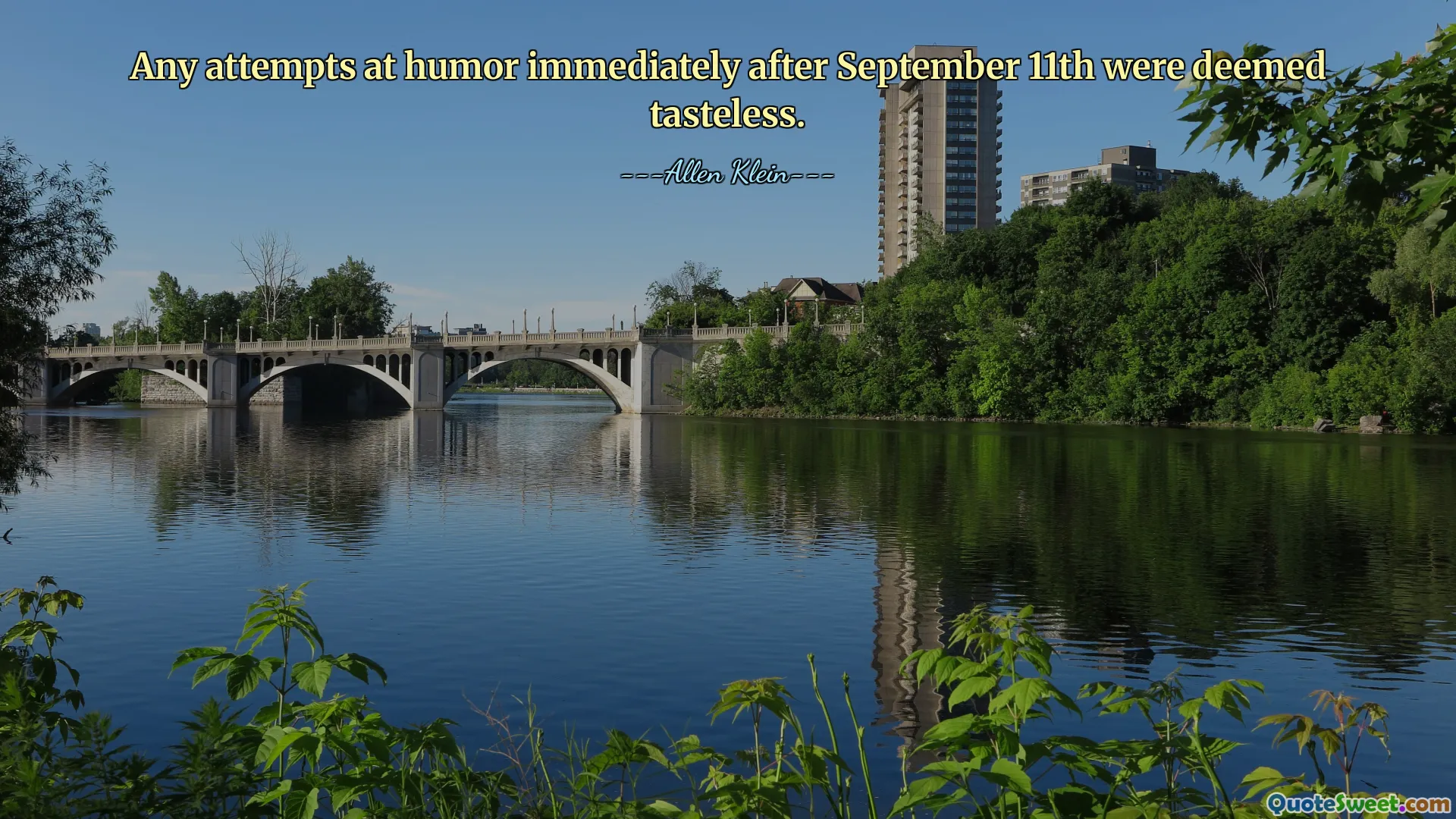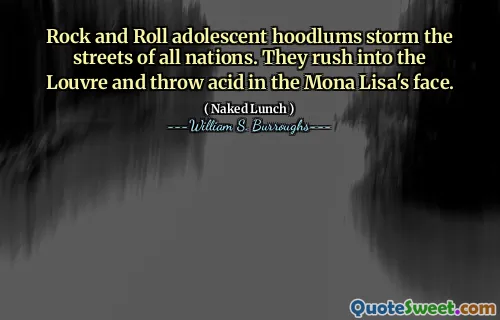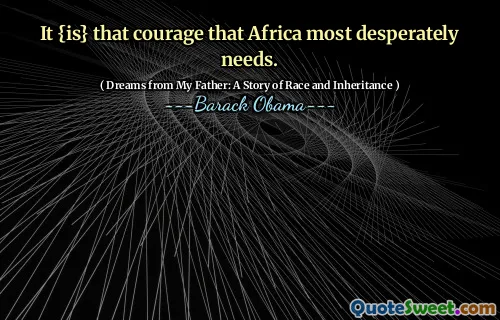
Any attempts at humor immediately after September 11th were deemed tasteless.
The quote highlights the societal boundary that was temporarily redefined following the tragic events of September 11th. It underscores how expressions of humor, often considered a vital part of human resilience and coping mechanisms, can sometimes be viewed as inappropriate or disrespectful in the aftermath of catastrophe. This shift reflects a collective sense of grief, shock, and mourning that overrides previous norms of casual or comedic expression. During times of crisis, people's sensitivities heighten, and what might normally be acceptable in regular circumstances is now perceived as insensitive or offensive. The societal consensus often calls for a period of solemnity and respect to honor those affected, which can lead to a temporary retreat from humor in public discourse. However, humor can also serve as a conduit for healing, helping individuals process trauma in private or within trusted communities, but the timing and content are critical. Over time, as collective grief lessens, the boundaries around humor may loosen, returning to pre-crisis norms or evolving new standards that acknowledge both respect and the human need for levity. This quote reflects the delicate balance societies maintain between empathy and the human desire to find relief through humor during difficult times. It reminds us of the importance of context and sensitivity in communication, particularly in moments of collective vulnerability.










